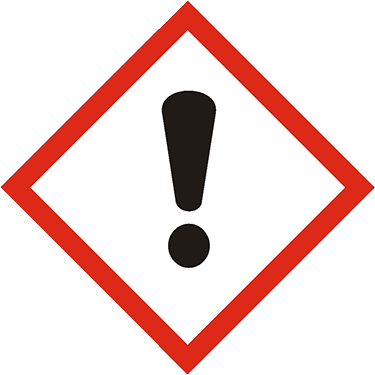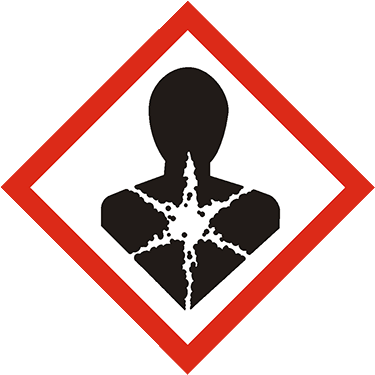当前位置:
首页
>
产品中心 >
Biochemical_standard >
AccuStandard/M-8270 Calibration Level 5 w/ ISTD/M-8270-IS-WL-8X/1 mL

AccuStandard/M-8270 Calibration Level 5 w/ ISTD/M-8270-IS-WL-8X/1 mL
商品编号:
M-8270-IS-WL-8X
品牌:
ccustandard Inc
市场价:
¥0.00
美元价:
0.00
产品分类:
生化标准品
公司分类:
Biochemical_standard
联系Q Q:
3392242852
电话号码:
4000-520-616
电子邮箱:
info@ebiomall.com
商品介绍
Additional Information
Comments
The product is sold as part of a set or kit, and is not available for individual sale.
Concentration
Varied
Storage Condition
Refrig (0-5 °C)
Safety Data Sheet
Certificate of Analysis
| Analyte | CAS Number | Target Concentration |
|---|---|---|
| Acenaphthene | 83-32-9 | 160 µg/mL |
| Acenaphthylene | 208-96-8 | 160 µg/mL |
| Aniline | 62-53-3 | 160 µg/mL |
| Anthracene | 120-12-7 | 160 µg/mL |
| Azobenzene | 103-33-3 | 160 µg/mL |
| Benz(a)anthracene | 56-55-3 | 160 µg/mL |
| Benzidine | 92-87-5 | 160 µg/mL |
| Benzo(b)fluoranthene | 205-99-2 | 160 µg/mL |
| Benzo(k)fluoranthene | 207-08-9 | 160 µg/mL |
| Benzoic acid | 65-85-0 | 160 µg/mL |
| Benzo(g,h,i)perylene | 191-24-2 | 160 µg/mL |
| Benzo(a)pyrene | 50-32-8 | 160 µg/mL |
| Benzyl alcohol | 100-51-6 | 160 µg/mL |
| 4-Bromophenyl phenyl ether | 101-55-3 | 160 µg/mL |
| Butyl benzyl phthalate | 85-68-7 | 160 µg/mL |
| Carbazole | 86-74-8 | 160 µg/mL |
| 4-Chloroaniline | 106-47-8 | 160 µg/mL |
| bis(2-Chloroethoxy)methane | 111-91-1 | 160 µg/mL |
| bis(2-Chloroethyl)ether | 111-44-4 | 160 µg/mL |
| bis(2-Chloro-1-methylethyl)ether | 108-60-1 | 160 µg/mL |
| 4-Chloro-3-methylphenol | 59-50-7 | 160 µg/mL |
| 2-Chloronaphthalene | 91-58-7 | 160 µg/mL |
| 2-Chlorophenol | 95-57-8 | 160 µg/mL |
| 4-Chlorophenyl phenyl ether | 7005-72-3 | 160 µg/mL |
| Chrysene | 218-01-9 | 160 µg/mL |
| o-Cresol | 95-48-7 | 160 µg/mL |
| p-Cresol | 106-44-5 | 160 µg/mL |
| Dibenz(a,h)anthracene | 53-70-3 | 160 µg/mL |
| Dibenzofuran | 132-64-9 | 160 µg/mL |
| Di-n-butyl phthalate | 84-74-2 | 160 µg/mL |
| 1,2-Dichlorobenzene | 95-50-1 | 160 µg/mL |
| 1,3-Dichlorobenzene | 541-73-1 | 160 µg/mL |
| 1,4-Dichlorobenzene | 106-46-7 | 160 µg/mL |
| 3,3'-Dichlorobenzidine | 91-94-1 | 160 µg/mL |
| 2,4-Dichlorophenol | 120-83-2 | 160 µg/mL |
| Diethyl phthalate | 84-66-2 | 160 µg/mL |
| 2,4-Dimethylphenol | 105-67-9 | 160 µg/mL |
| Dimethyl phthalate | 131-11-3 | 160 µg/mL |
| 4,6-Dinitro-2-methylphenol | 534-52-1 | 160 µg/mL |
| 2,4-Dinitrophenol | 51-28-5 | 160 µg/mL |
| 2,4-Dinitrotoluene | 121-14-2 | 160 µg/mL |
| 2,6-Dinitrotoluene | 606-20-2 | 160 µg/mL |
| Di-n-octyl phthalate | 117-84-0 | 160 µg/mL |
| bis(2-Ethylhexyl)phthalate | 117-81-7 | 160 µg/mL |
| Fluoranthene | 206-44-0 | 160 µg/mL |
| Fluorene | 86-73-7 | 160 µg/mL |
| Hexachlorobenzene | 118-74-1 | 160 µg/mL |
| Hexachlorobutadiene | 87-68-3 | 160 µg/mL |
| Hexachlorocyclopentadiene | 77-47-4 | 160 µg/mL |
| Hexachloroethane | 67-72-1 | 160 µg/mL |
| Indeno(1,2,3-cd)pyrene | 193-39-5 | 160 µg/mL |
| Isophorone | 78-59-1 | 160 µg/mL |
| 2-Methylnaphthalene | 91-57-6 | 160 µg/mL |
| Naphthalene | 91-20-3 | 160 µg/mL |
| 2-Nitroaniline | 88-74-4 | 160 µg/mL |
| 3-Nitroaniline | 99-09-2 | 160 µg/mL |
| 4-Nitroaniline | 100-01-6 | 160 µg/mL |
| Nitrobenzene | 98-95-3 | 160 µg/mL |
| 2-Nitrophenol | 88-75-5 | 160 µg/mL |
| 4-Nitrophenol | 100-02-7 | 160 µg/mL |
| N-Nitrosodimethylamine | 62-75-9 | 160 µg/mL |
| N-Nitrosodiphenylamine | 86-30-6 | 160 µg/mL |
| N-Nitroso-di-n-propylamine | 621-64-7 | 160 µg/mL |
| Pentachlorophenol | 87-86-5 | 160 µg/mL |
| Phenanthrene | 85-01-8 | 160 µg/mL |
| Phenol | 108-95-2 | 160 µg/mL |
| Pyrene | 129-00-0 | 160 µg/mL |
| Pyridine | 110-86-1 | 160 µg/mL |
| 1,2,4-Trichlorobenzene | 120-82-1 | 160 µg/mL |
| 2,4,5-Trichlorophenol | 95-95-4 | 160 µg/mL |
| 2,4,6-Trichlorophenol | 88-06-2 | 160 µg/mL |
| 2-Fluorobiphenyl | 321-60-8 | 160 µg/mL |
| 2-Fluorophenol | 367-12-4 | 160 µg/mL |
| Nitrobenzene-d5 | 4165-60-0 | 160 µg/mL |
| Phenol-d5 | 4165-62-2 | 160 µg/mL |
| p-Terphenyl-d14 | 1718-51-0 | 160 µg/mL |
| 2,4,6-Tribromophenol | 118-79-6 | 160 µg/mL |
| Acenaphthene-d10 | 15067-26-2 | 40 µg/mL |
| Chrysene-d12 | 1719-03-5 | 40 µg/mL |
| 1,4-Dichlorobenzene-d4 | 3855-82-1 | 40 µg/mL |
| Naphthalene-d8 | 1146-65-2 | 40 µg/mL |
| Perylene-d12 | 1520-96-3 | 40 µg/mL |
| Phenanthrene-d10 | 1517-22-2 | 40 µg/mL |
Molecular Formula
N/A
Molecular of Weight
N/A
Melting Point (°C)
-97 °C
Boiling Point (°C)
40 °C
Flash Point (°C)
>230 °F
Symbol


Signal word
Warning
Hazard statements
Suspect cancer hazard. (Carcinogenicity, category 2)
Harmful if swallowed. (Acute toxicity, oral, category 4)
Harmful if inhaled. (Acute toxicity, inhalation, category 4)
Irritating to skin. (Skin corrosion/irritation, category 2)
May be irritating to mucous membrane and upper respiratory system. (Specific target organ toxicity, single exposure; Respiratory tract irritation, category 3)
Harmful if swallowed. (Acute toxicity, oral, category 4)
Harmful if inhaled. (Acute toxicity, inhalation, category 4)
Irritating to skin. (Skin corrosion/irritation, category 2)
May be irritating to mucous membrane and upper respiratory system. (Specific target organ toxicity, single exposure; Respiratory tract irritation, category 3)
Precautionary statements
Eye contact: Immediately flush with plenty of water. After initial flushing, remove and contact lenses and continue flushing for at least 15 minutes. Assure adequate flushing by separating the eyelids with fingers. (P338)
Skin contact: Immediately wash skin with soap and plenty of water. Remove contaminated clothing. Get medical attention if symptoms occur. Wash clothing before reuse. (P360)
Ingestion: Do NOT induce vomiting. Call a physician or poison control center immediately. Never give anything by mouth to an unconscious person. (P331)
Store in a tightly closed container. (P404)
Do not get in eyes, on skin or clothing. (P262)
This product should only by used by persons trained in the safe handling of hazardous chemicals. (P202)
Wash thoroughly after handling. Do not take internally. Eye wash and safety equipment should be readily available. (P264)
Respiratory Protection: If workplace exposure limit(s) of product or any component is exceeded (see TLV/PEL), or a risk assessment shows air-purifying respirators are appropriate, use of a NIOSH/MSHA approved air supplied respirator is advised. Use a full-face respirator with multi-purpose combination (US) or type ABEK (EN14387) respirator cartridges in absence of proper environmental control. Always use respirators and components tested and approved under appropriate government standards such as NIOSH (US) or CEN (EU). Engineering and/or administrative controls should be implemented to reduce exposure.
Protective gloves must be worn to prevent skin contact. (P280)
Skin contact: Immediately wash skin with soap and plenty of water. Remove contaminated clothing. Get medical attention if symptoms occur. Wash clothing before reuse. (P360)
Ingestion: Do NOT induce vomiting. Call a physician or poison control center immediately. Never give anything by mouth to an unconscious person. (P331)
Store in a tightly closed container. (P404)
Do not get in eyes, on skin or clothing. (P262)
This product should only by used by persons trained in the safe handling of hazardous chemicals. (P202)
Wash thoroughly after handling. Do not take internally. Eye wash and safety equipment should be readily available. (P264)
Respiratory Protection: If workplace exposure limit(s) of product or any component is exceeded (see TLV/PEL), or a risk assessment shows air-purifying respirators are appropriate, use of a NIOSH/MSHA approved air supplied respirator is advised. Use a full-face respirator with multi-purpose combination (US) or type ABEK (EN14387) respirator cartridges in absence of proper environmental control. Always use respirators and components tested and approved under appropriate government standards such as NIOSH (US) or CEN (EU). Engineering and/or administrative controls should be implemented to reduce exposure.
Protective gloves must be worn to prevent skin contact. (P280)
UN Number
UN1593
Class
6.1
Packing Group
III
品牌介绍
对于对科学的起源和历史感兴趣的化学家,瞥一眼其前身Alchemy可以看到迷人的风景。炼金术这个词源于阿拉伯文的al-kimia,既是一种哲学,又是一种古老的实践,侧重于将贱金属转变为黄金以及研究“长寿药剂”的研究。炼金术士常常说服那些有权势而又富有的贵族,他们可以用他们的技能进一步丰富和赋权他们。拥有自己的炼金术士是贵族地位提高的标志。尽管炼金术涉及大量的“魔术”,但是炼金术的一些更实际的方面构成了现代无机化学的基础。在18世纪末和19世纪初,一些比较好奇和才华横溢的炼金术士使用他们的技术来进行我们现在称为化学的工作。最初的蒸馏和过滤是在19世纪由早期和著名的化学家进行的,如罗伯特·博伊尔(1627-1691),汉弗莱·戴维爵士(1778-1829)和安托万·拉瓦锡(1743-1794),通常被认为是现代化学之父。化学元素的发现具有悠久的历史,始于炼金术,最终由Dmitri Mendeleev(1834-1907)创建化学元素周期表。通过根据元素的化学性质对元素进行分类,他开发了元素周期表,他通常因此而获得赞誉。16-19世纪一些最伟大的画家-Teniers和Brueghel-选择炼金术士作为主题,有时是令人钦佩,有时是讽刺。AccuStandard,Inc.的创始人Michael Bolgar长期以来一直是炼金术士和炼金术士的崇拜者和艺术收藏家。多亏了他,我们才能与您分享其中的一些艺术品。
联络我们



